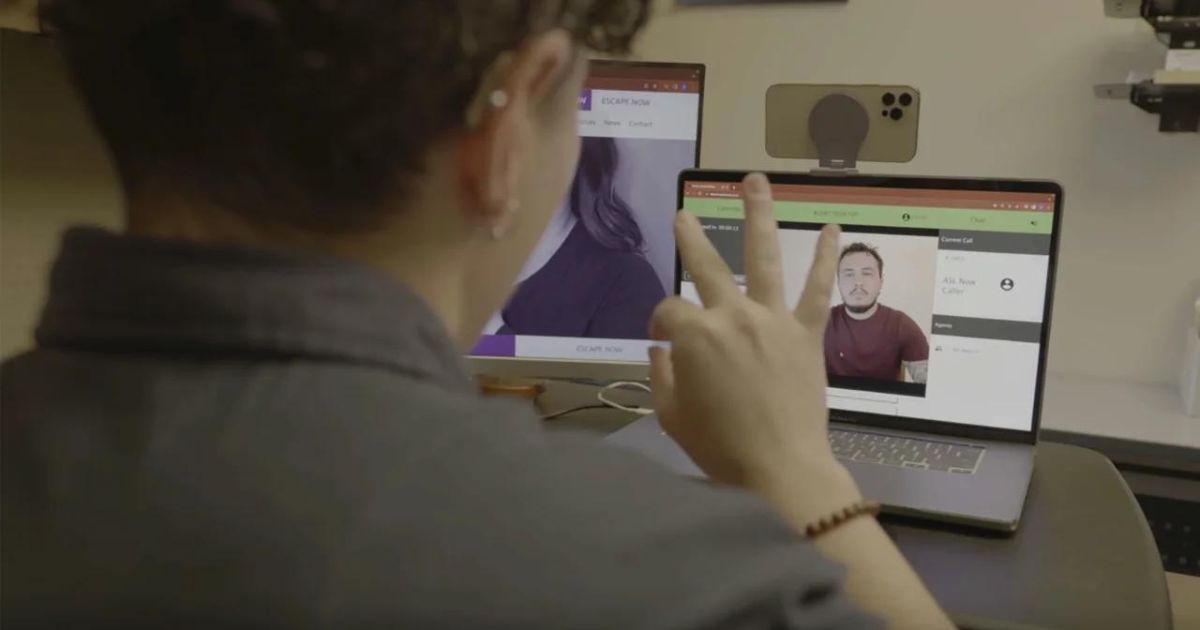The U.S. Department of Health and Human Services has announced a significant development in the 988 Suicide and Crisis Lifeline, making it accessible to millions of Americans who use American Sign Language (ASL).
This much-needed expansion aims to provide crucial support to individuals who are deaf, deaf-blind, or hard of hearing through the use of videophones, a communication device that enables both video and audio transmission.
The newly launched ASL services, introduced on a Friday, offer a lifeline to those who previously faced barriers in accessing crisis support due to communication challenges.
Now, individuals utilizing videophones can connect with a 988 Lifeline counselor specially trained in ASL.
Suicide And Crisis Lifeline To Support Vital Assistance
The process is streamlined and user-friendly, with callers simply needing to click on the “ASL Now” button on the 988 Lifeline website (988lifeline.org) and follow the prompts to access the assistance they require.
While the introduction of direct dialing to 988 from videophones is in the works and expected to be available in the coming weeks, ASL users can connect with ASL services immediately by dialing 1-800-273-TALK (8255) from their videophones, as per the guidance provided by the HHS.
This expansion of the 988 Suicide and Crisis Lifeline represents a significant step forward in ensuring that mental health support is accessible to all Americans, regardless of their communication needs.
It acknowledges the unique challenges faced by individuals who are deaf, deaf-blind, or hard of hearing and seeks to address them with tailored solutions.
The 988 Lifeline has been instrumental in providing vital support and intervention for individuals experiencing mental health crises, and this development extends its reach to a previously underserved demographic.
Mental health crises can affect anyone, and having accessible resources is crucial in ensuring that help is available when needed most.
The use of videophones as a communication tool has been transformative for the deaf and deaf-blind communities.
These devices enable real-time video communication, allowing individuals to communicate effectively through sign language, gestures, and facial expressions.
However, accessing mental health crisis support through traditional phone lines often posed challenges for this population.
The introduction of ASL services for the 988 Lifeline acknowledges the importance of accommodating diverse communication needs. It is a step towards inclusivity and ensuring that individuals with hearing-related challenges have equal access to mental health services.
The 988 Lifeline’s commitment to inclusivity extends to providing trained ASL counselors who understand the unique needs and experiences of individuals in the deaf and hard of hearing community.
This expertise ensures that callers receive the support and guidance they require during times of crisis.
The process of accessing ASL services on the 988 Lifeline platform is designed to be user-friendly, reducing any potential barriers to seeking help.
By clicking the “ASL Now” button on the 988 Lifeline website, individuals are seamlessly connected to a counselor who can assist them in sign language, creating a more comfortable and effective means of communication during a crisis.
While direct dialing to 988 from videophones is on the horizon, the immediate availability of ASL services through the provided phone number, 1-800-273-TALK (8255), ensures that individuals can connect with trained professionals right away.
The U.S. Department of Health and Human Services is actively working to make the process even more accessible in the near future.
This expansion of the 988 Lifeline aligns with the broader effort to address mental health concerns and promote well-being in the United States.
It reflects a commitment to inclusivity, accessibility, and the recognition that mental health support should be available to all, regardless of communication preferences or abilities.
In conclusion, the launch of ASL services for the 988 Suicide and Crisis Lifeline marks a significant milestone in expanding access to mental health support for individuals who are deaf, deaf-blind, or hard of hearing.
This development ensures that those facing communication barriers have a lifeline they can reach out to during times of crisis, providing them with the help and guidance they need.
The commitment to inclusivity and accessibility underscores the importance of addressing mental health concerns in all communities, and this expansion represents a vital step towards that goal.






















